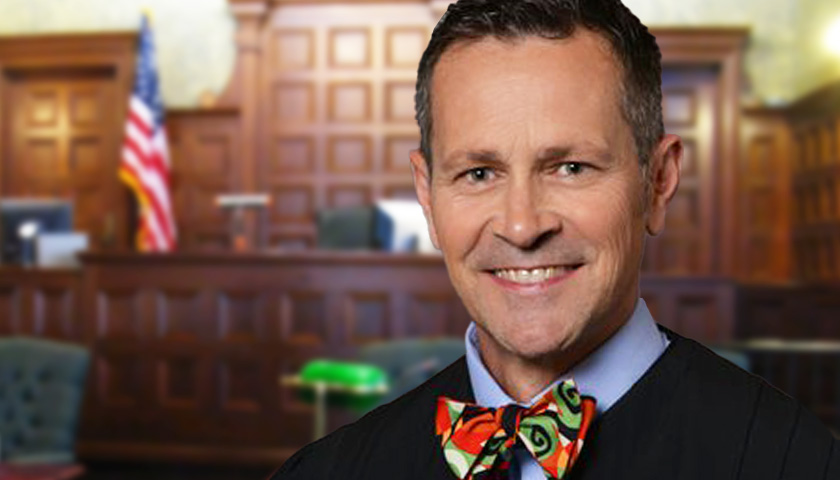by Pafoua Yang
A Ramsey County judge struck down several longstanding abortion restrictions in a Monday ruling, just two weeks after the U.S. Supreme Court overturned Roe v. Wade.
“The right to choose to have an abortion … would be meaningless without the right to access abortion care,” Judge Thomas Gilligan said in his ruling. Gilligan was appointed to the bench by former Gov. Mark Dayton in September 2014.
Gilligan concluded that several pro-life provisions in Minnesota law are unconstitutional, including:
- The “physician-only law,” which requires abortions to be performed only by physicians.
- The “hospitalization law,” which mandates that abortions after the first trimester be performed in a hospital or abortion facility.
- A law that subjects abortion providers to felony penalties for violating state regulations.
- The “two–parent notification law,” which requires both parents of a minor to be given notice 48 hours before the procedure.
- The “mandatory disclosure law,” which mandates a 24-hour waiting period before an abortion. It also requires physicians to inform the patient of the medical risks associated with abortion and how to review materials on alternatives to abortion.
The only law Judge Gilligan upheld was one requiring abortion facilities to make reports to the state health commissioner on abortion complications and deaths.
The plaintiffs, led by a pro-abortion organization called Our Justice, sued the state in May 2019, arguing that Minnesota’s abortion restrictions are unconstitutional.
“Restrictions on abortion care not only make essential health care financially and logistically inaccessible, they also disproportionately impact people of color, people with low incomes, queer and trans people who reach out to our abortion assistance fund. In light of the Supreme Court overturning Roe v. Wade, every piece of red tape matters for Minnesotans and people traveling to Minnesota for abortion care. Today’s ruling is an important step toward making abortion accessible to everyone who needs it,” Shayla Walker, executive director of Our Justice, said in a statement.
Minnesota Citizens Concerned for Life said the laws challenged in this case are common-sense measures that support and empower pregnant women.
“Today’s ruling striking them down is extreme and without a foundation in the Minnesota Constitution. Even the U.S. Supreme Court, under Roe v. Wade and subsequent decisions, allowed these very modest types of laws. Yet today’s ruling blocks them and prevents Minnesotans from enacting reasonable protections for unborn children and their mothers. The decision must be appealed,” said MCCL Executive Director Scott Fischbach.
MCCL pointed out that a law similar to Minnesota’s mandatory disclosure law was upheld by the U.S. Supreme Court in its 1992 Planned Parenthood v. Casey decision. Minnesota’s parental notification law was previously challenged and then upheld by the U.S. Supreme Court in its 1990 Hodgson v. Minnesota decision.
“A lot of women have been helped by these policies,” said Fischbach. “Now they will be harmed as these protections are taken away by an egregiously mistaken court ruling, one that goes well beyond Roe v. Wade. This mistake must be corrected.”
House Minority Leader Kurt Daudt, R-Crown, urged Attorney General Keith Ellison to appeal the decision, saying he has a constitutional duty to defend Minnesota laws.
“The effort by pro-abortion activists and their liberal donors will put lives at risk by allowing non-physicians to perform abortions and second or third trimester abortions to be performed in non-medical settings,” Daudt said.
“Republicans will continue to defend common-sense pro-life laws that protect the health and safety of mothers, and work to overturn this reckless decision that puts mothers’ lives at risk,” he added.
Earlier this month, the Minnesota Department of Health released two-years’ worth of abortion data. The data found that the majority of abortions in 2021 were performed because the woman “did not want children at this time.” There were 55 abortions performed because the pregnancy was a result of rape or incest, representing 0.5% of total abortions.
– – –
Pafoua Yang is a reporter for Alpha News. She has worked as an on-air reporter for stations across the Twin Cities.
Photo “Thomas Gilligan” by Minnesota Judicial Branch. Background Photo “Courtroom” by Clyde Robinson. CC BY 2.0.




